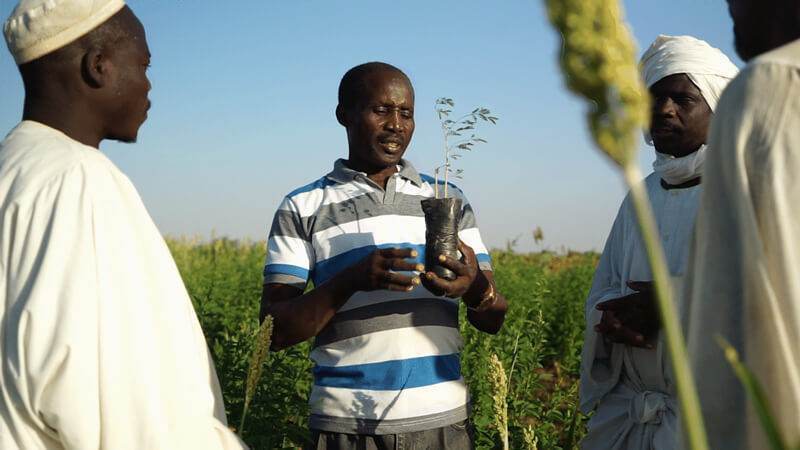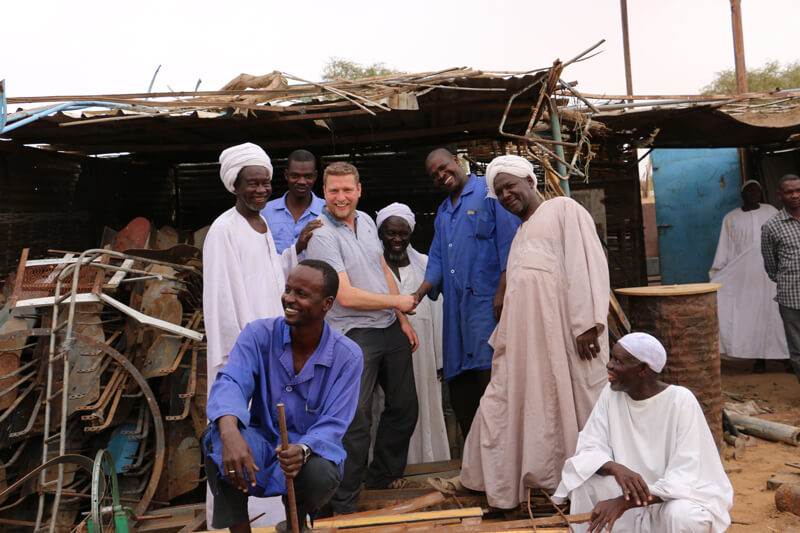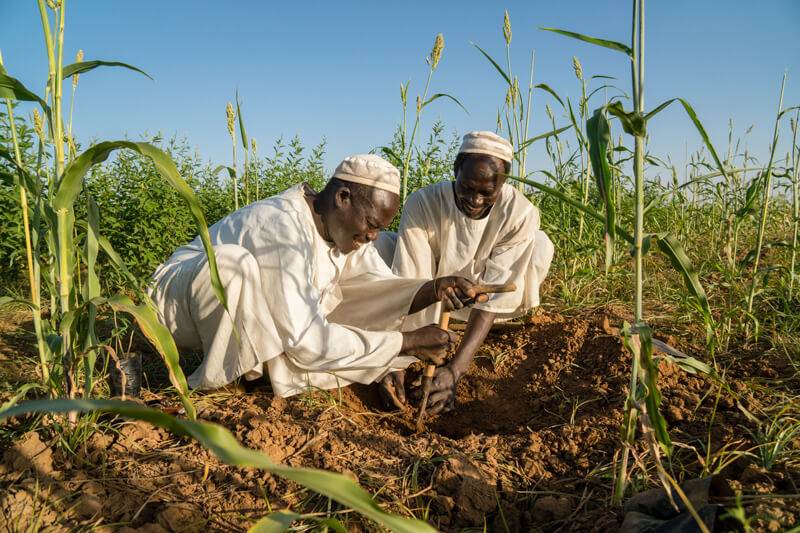In the shade of one of thousands of viciously spiky gum Arabic trees that make up Majdoub’s community forest, I spoke to Sitelnisa, a 40-year-old mum of two.
She glowed with pride as she told me how her life had changed from one in which she spent the majority of her day collecting water, to one in which she grows cash crops in the community forest and leads negotiations on food prices in the market.
She said: “We didn’t understand why the trees were important until we got trained by Practical Action.
“After the training, we were offered some to plant. I got 100. I planted mine around my farm. After I did this, I learnt that it wasn’t just preventing deforestation but it helped fertilise my soil and protect my crops. It’s also good for the environment and provides shade for me.
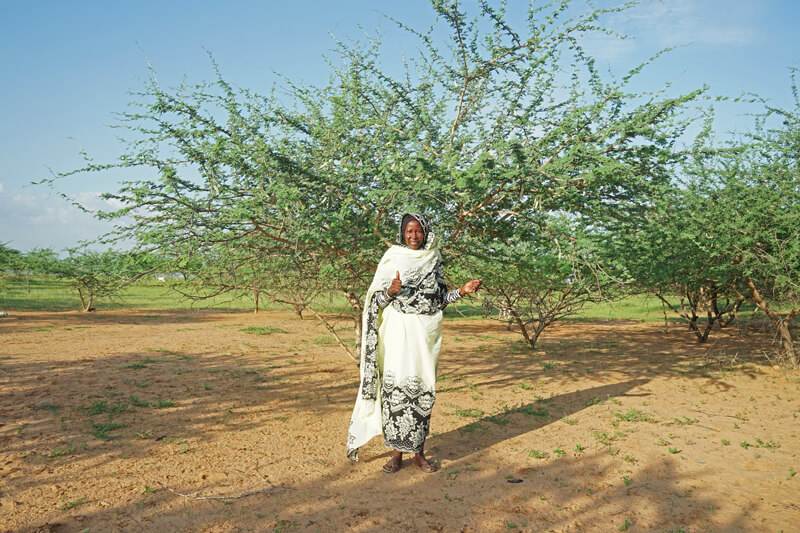
“Before the dam, I would rely completely on the rain. If there was rain, then thanks to God. If there was no rain then we would have nothing. Now we have the dam, we are sure that the water will be there. Before, I would travel 5 to 6km to collect water with my donkey. I would go several times a day while planting the trees.”
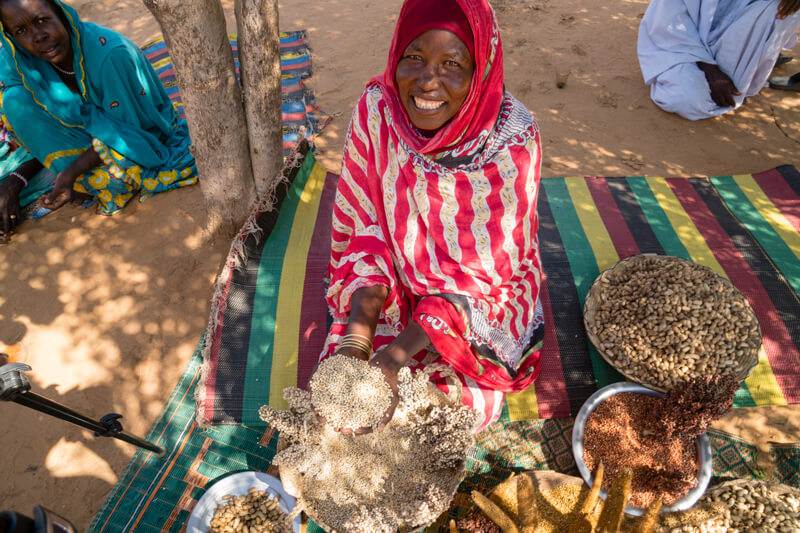
“We didn’t know about measuring space between crops. We also learnt how to grow a variety of crops, which keeps the soil fertility good. Now, we are dividing the land into sections and rotate our crops.
“I am so happy, I have been able to create more relationships, especially with farmers in nearby villages. It has enhanced social connections.
“Because of the dam and the irrigation, I have been able to plant a lot of new crops that I wasn’t able to do before. I can also plant during winter.
“We take our crops to some local markets and to El Fasher. We were taught how to negotiate and to ask for a better price.
Sitelnisa’s new skills and contacts means she has been able to move from just surviving day to day to having the ability to withstand financial shocks.
“I have been able to improve my income and have been able to send my two children to university. I now produce more and when one of my children became sick, I was able to pay for an operation. If I didn’t have good production then I wouldn’t have been able to do that because it was sudden and I had to react suddenly. It cost 15000SDG (approx. £270).”
“The dam here is very important but as a community we are looking forward to getting other diversion concourses to take the water from the main watercourses. This would increase the farmland a lot. The committee are helping to collect money so that we can build one.
“I want to do more projects if possible. I want to start a new business. I can do two things, purchase items and sell them – like sugar, oil etc. Or I can buy some goats. Before I had goats, before the conflict, but then I lost them. Now I can buy some again.”
